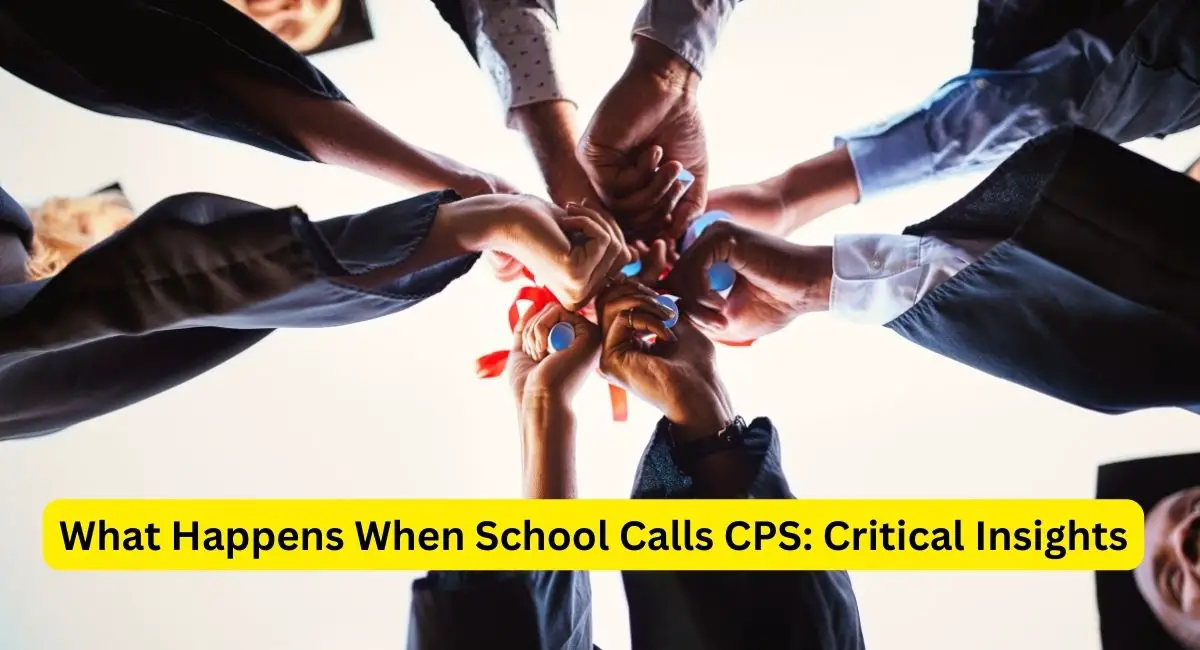When a school calls Child Protective Services (CPS), it is reporting suspected child abuse or neglect. CPS will then investigate to ensure the child’s safety.
Schools play a pivotal role in safeguarding the welfare of their students. As mandatory reporters, educators and school personnel are legally bound to report any signs of mistreatment or neglect to the appropriate authorities, which often means contacting CPS. This action triggers a formal process where CPS assesses the situation to protect any potentially endangered children.
Their prompt response is crucial in addressing the need for intervention and support for the child and family involved. The close cooperation between educational institutions and child welfare agencies ensures that concerns about a child’s well-being are handled with urgency and care. This partnership is instrumental in creating a safe environment that promotes the health and development of every student.
Initial Triggers For School Intervention
Educators are often the first to spot warning signs in students. Signs of neglect or abuse may trigger a school’s intervention. Unexplained injuries, frequent absences, or sudden changes in behavior can alert teachers.
Taking note of these signs, schools have a protocol to follow. It includes documentation and immediate reporting to the proper authorities.
Teachers and administrators are mandated reporters. This means they must report any signs of child abuse or neglect to Child Protective Services (CPS).
Upon observing concerning signs, educators initiate the protocol. They contact CPS confidentially. The well-being of the child is their primary concern.
A formal process begins thereafter. CPS takes the report seriously. They start an investigation.
Understanding The Role Of Cps
Child Protective Services (CPS) have crucial tasks to perform. They ensure children’s safety and well-being. Their core functions include investigating reports of child abuse or neglect. They offer services to children and families in need. Workers make sure that kids have safe, stable homes.
State laws give CPS the power to act. Each state has its own rules and protocols. CPS must follow these rules when they look into cases. They must keep the children’s best interests in mind.
CPS workers talk to kids and family members. They also work with other agencies. This helps them get a full view of the situation. It’s a team effort to protect every child.
Immediate Steps After A Report Is Filed
After a school reports to CPS (Child Protective Services), urgent actions follow. An initial contact by CPS occurs quickly. Often, this is a phone call to the child’s home. A CPS worker will introduce themselves and explain the reason for the call. They might ask for a meeting with the parents or guardians. This step is vital to understand the situation better.
The assessment and investigation process starts soon after. A CPS caseworker may visit the child’s home. They look for signs to ensure the child is safe. The caseworker talks to the child, parents, and sometimes teachers. Important details are noted. The goal is to protect the child from harm.
Potential Consequences For Families
Schools can alert Child Protective Services (CPS) if they suspect neglect or abuse. This move might lead to various actions. One action could be an investigation into the family’s situation. CPS aims to understand the family dynamics and the child’s needs.
Each case guides the type of intervention undertaken. Some families might receive support services such as counseling or parenting classes. These services aim to address issues and improve the home environment.
For serious concerns, the situation could lead to children being temporarily removed from the home. These steps ensure the child’s safety. Child welfare agencies focus on reunification, meaning they work hard to bring families back together once it’s safe.
Navigating The Aftermath In The School Setting
After a school calls Child Protective Services (CPS), it’s crucial to set up support systems for the affected child. The aim is to ensure the child’s safety and well-being. Schools often play a significant role in this process. Teachers, counselors, and other staff can provide a sense of stability for the child. They can also monitor the child’s progress and offer help when needed.
Communication is key in the collaboration between schools and CPS. Both parties must share information to protect the child. This includes regular updates and meetings to discuss the child’s situation. The goal is to create a plan that serves the child’s best interests. Students must feel secure so they can focus on learning.

Credit: thinkkids.org
Legal Rights And Advocacy For Parents
Parents have specific legal rights when schools report to Child Protective Services (CPS). Knowledge of these rights is essential. Seeking a skilled lawyer can safeguard a family’s interests. Parents can also contact legal aid organizations to understand their position better.
Legal representation is crucial. Various resources offer affordable or no-cost legal help. Cultivating a strong defense often requires proper legal advice. This ensures to take the right action. Parents should act promptly in seeking assistance.
Prevention And Education: Proactive School Approaches
Schools play a vital role in safeguarding children by launching awareness programs targeting students. Programs focus on educating children about their rights, recognizing abuse, and methods of seeking help.
Training sessions for teachers and staff are essential in prevention efforts. This training ensures they can identify signs of child abuse and understand the protocol for reporting to Child Protective Services (CPS). Such preparation is crucial for the well-being of students.

Credit: www.tomorrow.bio

Credit: www.facebook.com
Frequently Asked Questions For What Happens When School Calls Cps
Why Do Teachers Call Cps?
Teachers call CPS (Child Protective Services) to report suspected child abuse, neglect, or endangerment, fulfilling their legal mandate as mandatory reporters. They act to ensure the child’s safety and wellbeing.
What Questions Does Cps Ask References?
Child Protective Services (CPS) may ask references about the child’s wellbeing, the family environment, parenting practices, and any potential safety concerns or risks.
Can Cps Interview My Child At School In Texas?
Yes, Child Protective Services (CPS) can interview your child at their school in Texas, often without prior parental consent.
How Does A Cps Investigation Work In Texas?
A CPS investigation in Texas initiates with a report of abuse or neglect. The agency assesses risk, interviews involved parties, and inspects the child’s living conditions. CPS may create a safety plan or, if necessary, take legal action to ensure the child’s protection.
Conclusion
Navigating the complexities of CPS involvement is challenging for families and educators alike. By understanding the process and reasons behind a school’s decision to call CPS, individuals can better prepare for what follows. Remember, the primary focus is always the wellbeing of the child.
Stay informed, stay calm, and seek support when needed to ensure the best outcome for everyone involved.

